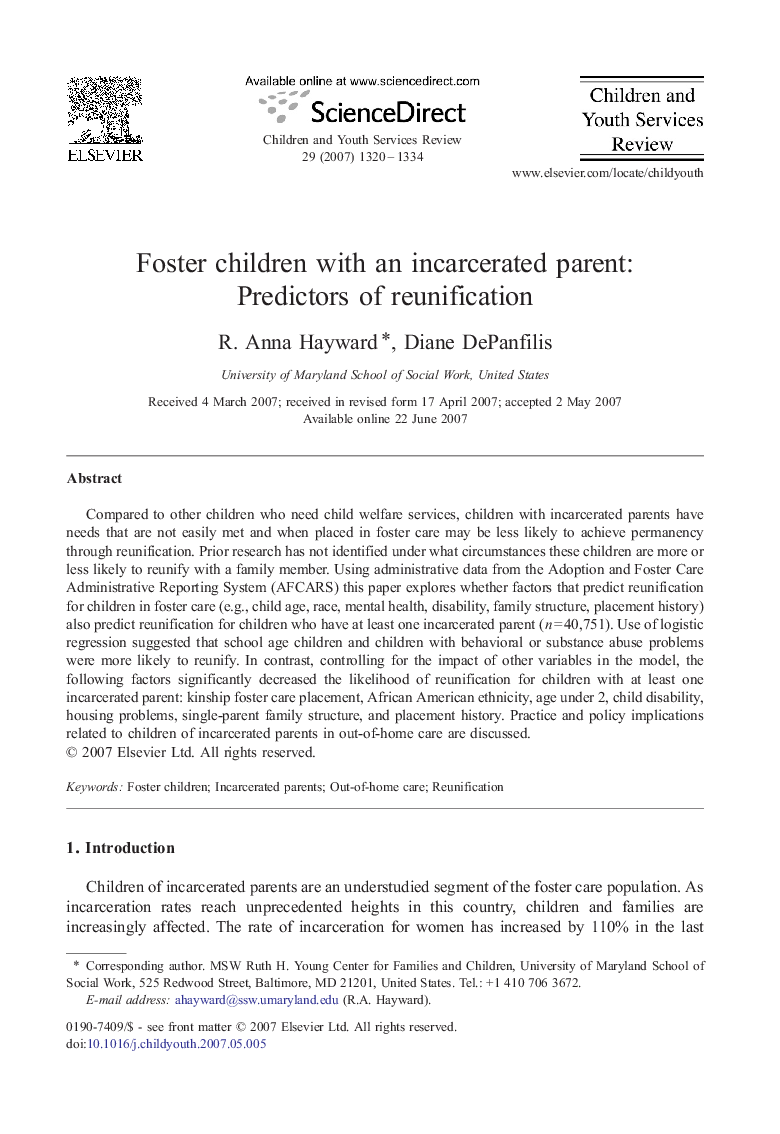| Article ID | Journal | Published Year | Pages | File Type |
|---|---|---|---|---|
| 347127 | Children and Youth Services Review | 2007 | 15 Pages |
Compared to other children who need child welfare services, children with incarcerated parents have needs that are not easily met and when placed in foster care may be less likely to achieve permanency through reunification. Prior research has not identified under what circumstances these children are more or less likely to reunify with a family member. Using administrative data from the Adoption and Foster Care Administrative Reporting System (AFCARS) this paper explores whether factors that predict reunification for children in foster care (e.g., child age, race, mental health, disability, family structure, placement history) also predict reunification for children who have at least one incarcerated parent (n = 40,751). Use of logistic regression suggested that school age children and children with behavioral or substance abuse problems were more likely to reunify. In contrast, controlling for the impact of other variables in the model, the following factors significantly decreased the likelihood of reunification for children with at least one incarcerated parent: kinship foster care placement, African American ethnicity, age under 2, child disability, housing problems, single-parent family structure, and placement history. Practice and policy implications related to children of incarcerated parents in out-of-home care are discussed.
